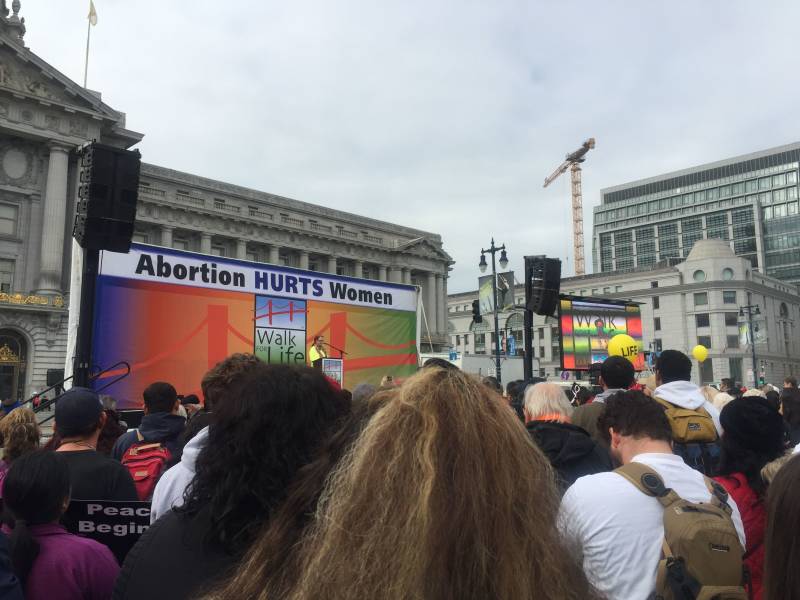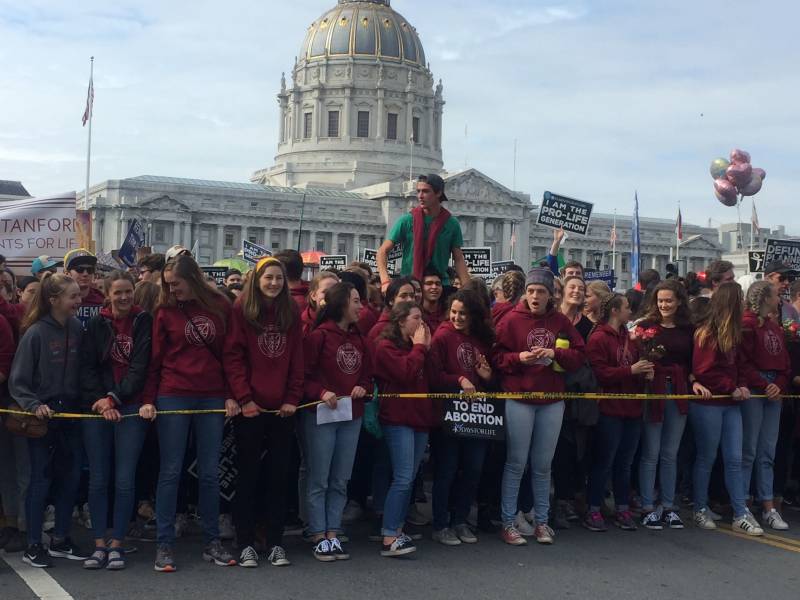Thousands took to downtown San Francisco on Saturday for an anti-abortion march, just one day after President Donald Trump threatened to withhold funds from the state over requirements that insurance plans cover abortion.
The event began with the National Anthem followed by a prayer. Attendees held signs saying, “Vote Life” and “Abortion Hurts Women” as they marched through downtown.
The first event of this kind took place in Washington D.C. in 1974, one year after the Supreme Court decided Roe vs. Wade — the ruling that affirmed women’s legal right to have an abortion.
A similar rally was held at the National Mall on Friday, where President Donald Trump became the first sitting president to speak during the march.
“Unborn children have never had a stronger defender in the White House,” Trump told the crowd.
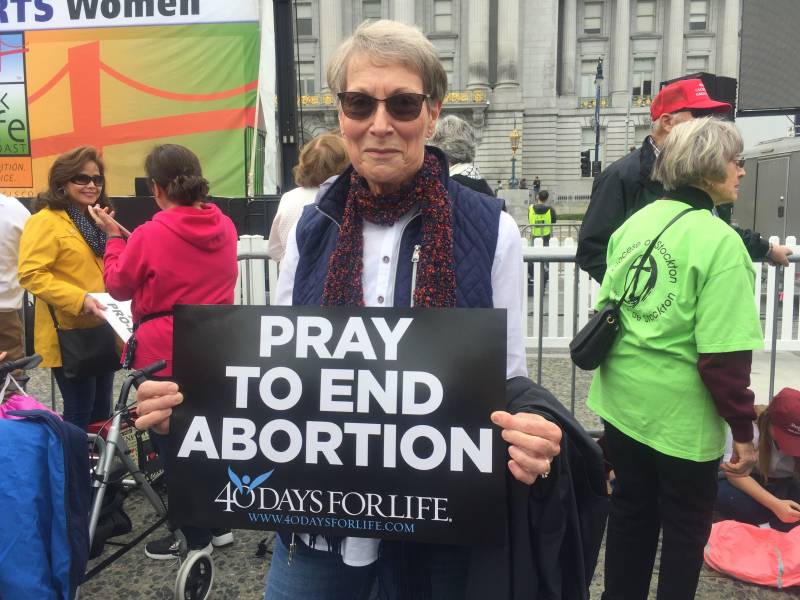
Marilyn Hicks, 73, is a retired nurse from Murphys, California. She said she supports the president because of his stance on abortion, even if she disagrees with his conduct online.
“I think that our Lord gives everyone the opportunity to repent of whatever sin they’ve committed. I don’t judge where they are in their walk,” said Hicks. “But he’s very pro-life, and he’s done a great deal for our nation as far as pro-life and religious rights. So I’ll vote for him. I think it is our biggest issue today. We have to reverse Roe vs. Wade in order to renew our nation.”
Many at the rally said they cast their ballots based on the candidate’s stance on abortion. White evangelicals and conservative Christians remain among Trump’s most loyal backers, according to an AP-NORC Poll.
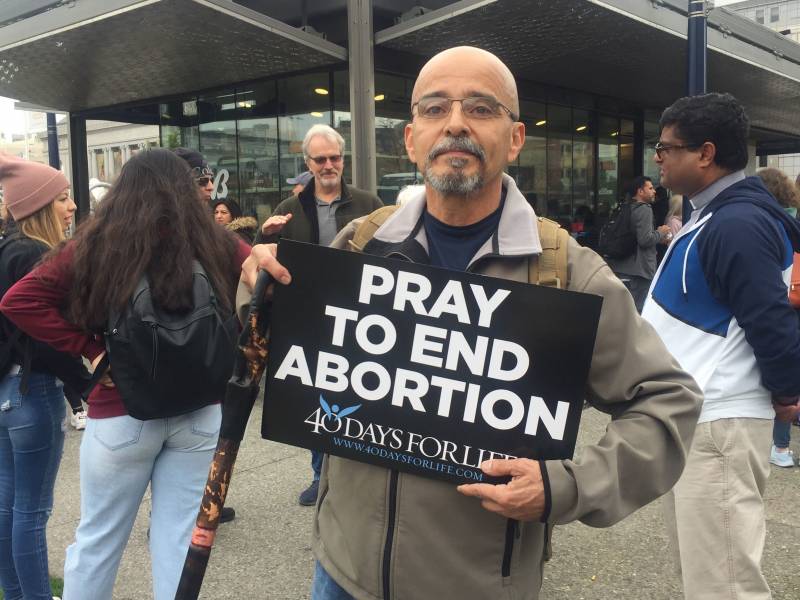
“If they don’t vote for life, then I don’t vote for them,” said Hervey Ibarra, a resident of Sparks, Nevada who came with more than 50 people from his local church. “I was very proud of what the president was saying,” he said, referring to the rally in Washington. “He’s talking about this, while other people seem like they don’t want to take up the subject.”
But others at the rally argued that the president’s voice isn’t needed on this issue. What is needed, instead, is more women.
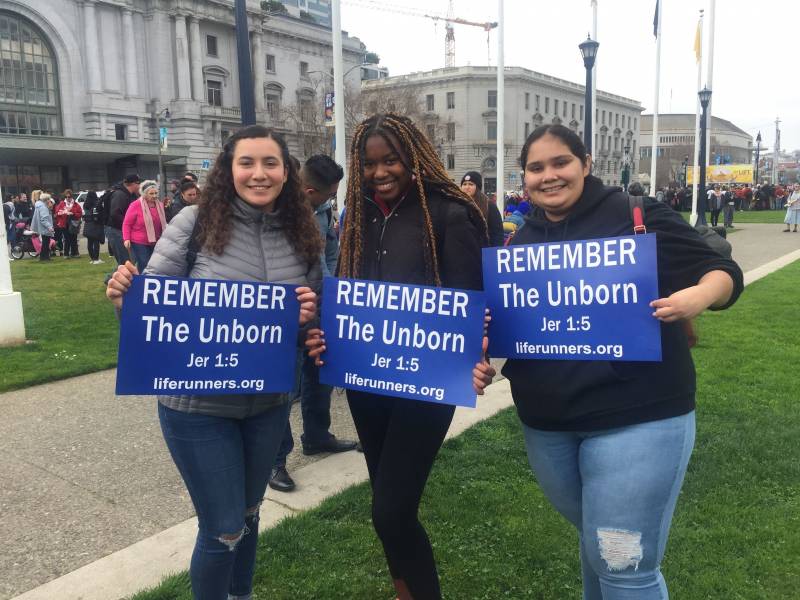
“If more women were involved in making decisions for women, it would make it easier,” said 17-year old Chiedza Prickisie. “You can’t say, ‘Donald Trump, do you know the consequences of abortion?’ [Men] don’t know anything to do with a woman’s body.”
While abortion is sometimes considered a “single-issue” for voters, some at the rally cautioned throwing support behind a single candidate because of their stance.
“Some people who are self-professed pro-lifers can have really controversial opinions about race, sex and religion. For me, it would be irresponsible to choose a candidate who was just pro-life, period,” said retired childcare provider Maria Delfino. “If he is the one who does his tweets, I wouldn’t vote for him. He’s leading the country. We need someone who has firmly established moral and ethics.”
